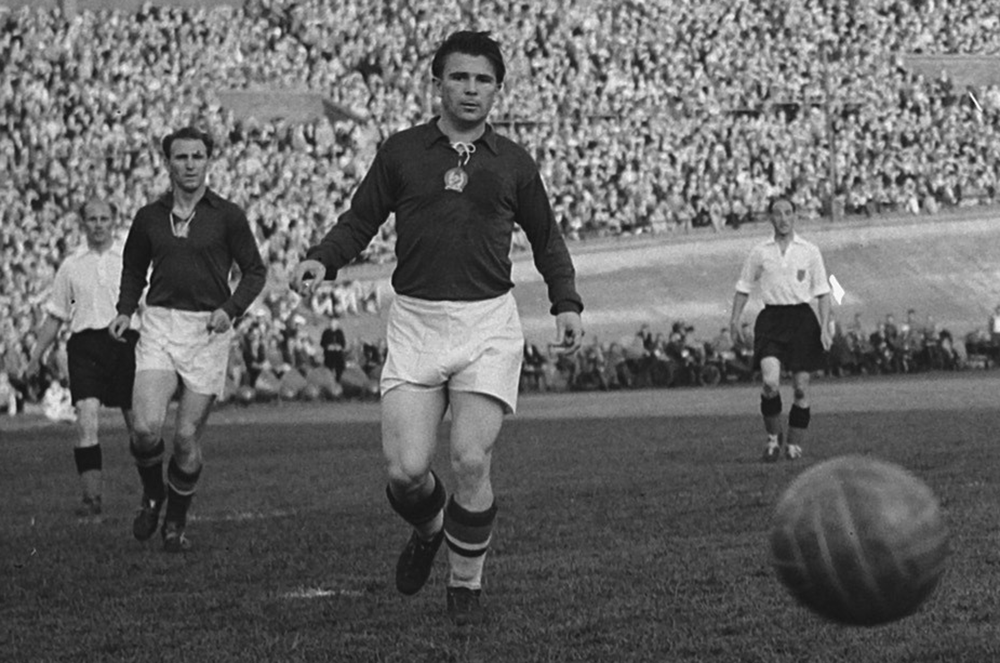
The world of football has witnessed some incredible talents over the years. From Lionel Messi to Cristiano Ronaldo, there have been many players who have left a lasting impact on the game. However, there are some players who have gone beyond their on-field performances and become true legends of the sport. One such player is Ferenc Puskás, the Hungarian forward who terrorized defenses in the 1950s.
Puskás was born in Budapest, Hungary, in 1927. He started his football career with Kispest AC, a local club in Budapest. He quickly established himself as one of the most talented players in the team and helped Kispest AC win their first Hungarian league title in 1949. Puskás' performances caught the attention of the Hungarian national team, and he made his debut for the team in 1945.
Puskás was known for his incredible technical ability and his lethal finishing. He was an expert in free kicks and had a knack for scoring goals from long range. He also had a great understanding of the game and was known for his intelligent movement off the ball. These qualities made him one of the most feared forwards of his time.
In 1952, Puskás helped Hungary win a gold medal in the Olympics, scoring two goals in the final against Yugoslavia. He also played a key role in Hungary's incredible unbeaten run between 1950 and 1956. During this period, Hungary won 42 out of their 51 matches, with Puskás scoring an incredible 84 goals.
However, it was Hungary's performance in the 1954 World Cup that really put Puskás on the map. Hungary were the overwhelming favorites to win the tournament, and they lived up to expectations in the early rounds, scoring a total of 17 goals in their first two games. However, disaster struck in the final against West Germany when Puskás picked up an ankle injury in the opening minutes of the game. Despite this setback, Hungary took a 2-0 lead within the first eight minutes, with Puskás scoring the first goal. However, West Germany fought back and equalized before half-time. In the second half, Puskás appeared to have scored the winning goal, but it was controversially disallowed, and West Germany went on to win the game 3-2.
Despite the disappointment of losing the World Cup final, Puskás remained a revered figure in Hungary. He continued to play for the national team until 1956 when Hungary was invaded by the Soviet Union. Puskás, along with several other members of the national team, defected to the West and continued his career with Real Madrid in Spain.
At Real Madrid, Puskás cemented his status as one of the all-time greats of the game. He won numerous titles with the club, including three European Cups. He formed a devastating partnership with Alfredo Di Stefano and helped Real Madrid dominate European football in the late 1950s and early 1960s.
Puskás retired from football in 1966 but continued to be involved in the sport. He became a coach and managed several clubs, including Panathinaikos in Greece and the Hungarian national team. He also served as a FIFA ambassador and was involved in the organization of the 1982 World Cup.
Puskás passed away in 2006 at the age of 79. He left behind a legacy that is still felt in Hungary and around the world. He was a player who revolutionized the game with his technical ability, his intelligence, and his incredible goalscoring prowess. He was a true icon of the sport, and his name will forever be associated with the golden age of Hungarian football.
Comentários
Enviar um comentário